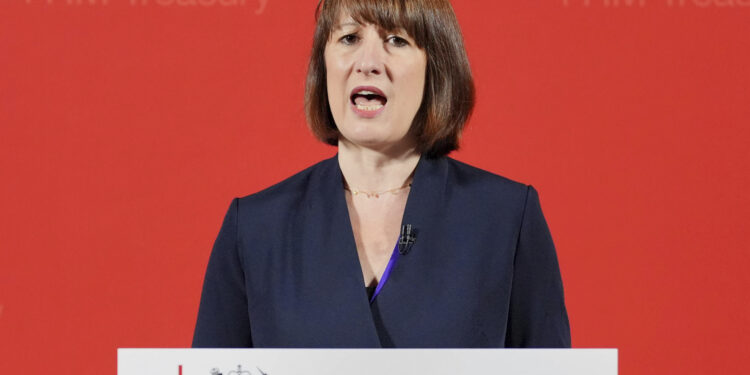7/30/2024–|Last update: 7/30/202408:24 PM (Makkah Time)
Britain’s Labour finance minister Rachel Reeves has said the country faces a huge £22 billion ($28 billion) budget gap inherited from the previous Conservative government.
“We inherited £22 billion of excess spending” that was “covered up” by the Conservative Party, which moved into opposition after 14 years in power, said Reeves, who took over as finance minister after the centre-left Labour Party won a landslide election victory on July 4.
Consequences of the gap
“If this is not addressed, it will mean a 25% increase in the budget deficit this year,” she added during a session in the House of Commons.
“Today I will detail the urgent and necessary work I have done to reduce this pressure on the public finances by £5.5 billion ($7 billion) this year and more than £8 billion ($10.27 billion) next year,” she continued.
Reeves announced on the sidelines of the G20 summit in Brazil last week that she would deliver “a speech to parliament on Monday about the state of public finances and pressures on government spending.”
She spoke at the time of “a huge challenge facing the Labour government because of the damage done to the economy and public services during the Conservative rule”.
Public debt
Public debt was £14.5 billion ($18.61 billion) in June, down about 20% from a year earlier but still higher than expected, according to the Office for National Statistics.
Total public debt has been approaching 100% of GDP for months (it was about $3.5 trillion in May), as a result of aid distributed during the pandemic or during the energy crisis in particular, and reached 99.5% of GDP at the end of June, remaining at levels not seen since “the early 1960s,” according to the Office for National Statistics.
Labour has ruled out increases to income tax, value added tax, social security contributions and corporation tax, but may consider changes to capital gains or inheritance taxes.
British poverty
A recent poll revealed that 53% of the British population feel that they have become poorer than they were 5 years ago.
Six in 10 of those surveyed (59%) said they expected the new government to prioritise measures to significantly improve their personal financial wellbeing, the PA Media news agency reported today.



